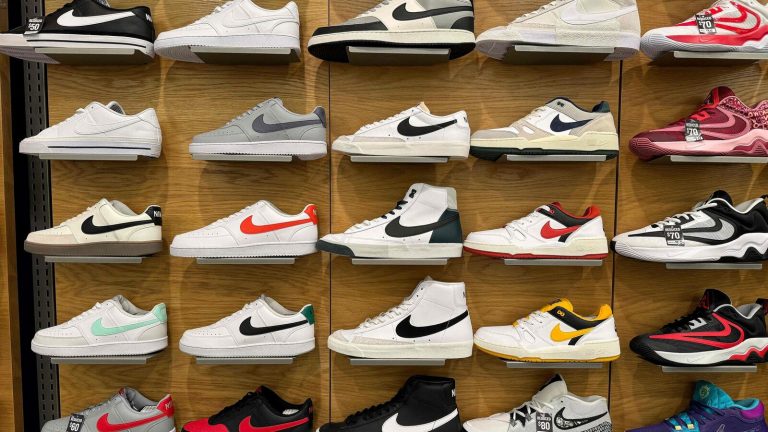Trump’s tariffs: The latest reciprocal tariffs imposed by US President Donald Trump on major trading partners will likely impact the supply chains of the world’s biggest footwear and apparel brands, especially the 46 per cent duties levied on Vietnam, a major production hub for these brands.
In the last decade, both Nike and Adidas, global brands in the sportswear and athletic apparel industry, have manufactured most of their goods in Vietnam. Currently, nearly half of Nike’s shoes are produced in Vietnam, according to its 2024 Annual report. Meanwhile, Adidas sources 27 per cent of its products from Vietnam.
For Nike and Adidas, Vietnam is the biggest supplier of footwear, contributing over $20 billion in combined annual revenue, according to a report by Bloomberg.
Impact of reciprocal tariffs on footwear brands
The reciprocal tariffs imposed by the United States are expected to impact major footwear brands. Nike expects a fall in gross margin already this quarter due to the tariffs imposed by the United States on China and Mexico.
“Shifting supply chains is not an option given performance footwear requires a very specific skill set and factories,” the report quoted Poonam Goyal, an analyst at Bloomberg Intelligence. “I can’t see how prices to consumers don’t go up,” she added.
What are reciprocal tariffs?
By definition, a reciprocal tariff is a tax or trade restriction that one country places on another in response to similar actions taken by that country.
On April 2, US President Donald Trump announced reciprocal tariffs on trading partners. Trump proposed at least a 10 per cent duty on nearly all goods entering the United States. In the case of Vietnam, Trump announced to impose a 46 per cent reciprocal tariff rates.
Presence of apparel brands in Vietnam
Apart from Nike and Adidas, Vietnam remains the biggest supplier for other major apparel companies, such as Uniqlo’s parent company, Fast Retailing Co, Hennes & Mauritz AB (H&M) and Gap Inc. The United States is the largest market for Vietnamese exports, with the total exports of the country standing at $44 billion, as per the Vietnam Textile and Apparel Association.
During Donald Trump’s first term as the US President, due to the escalating trade war with China, the footwear and textile industry in Vietnam saw a major boost.
Why do brands opt for Vietnam?
Vietnam has become one of the production hubs for top brands. It reportedly has low labour costs and a skilled workforce. The transport route to Vietnam is also considered less prone to geopolitical issues. Additionally, the country has trade agreements with the United States and the European Union.
Trump’s issue with Vietnam
In 2019, Trump claimed that Vietnam took advantage of the United States, which is “even worse than China,” indicating a potential action against the country.
With the trade war between the United States and China during Trump’s first term, footwear and apparel have become the top-most exported products from Vietnam. Currently, both Nike and Adidas produce less than 20 per cent of their footwear in China.
Vietnam is one of the fastest-growing economies in Asia. Its gross domestic product was 7.1 per cent last year, higher than estimates from analysts surveyed by Bloomberg.


